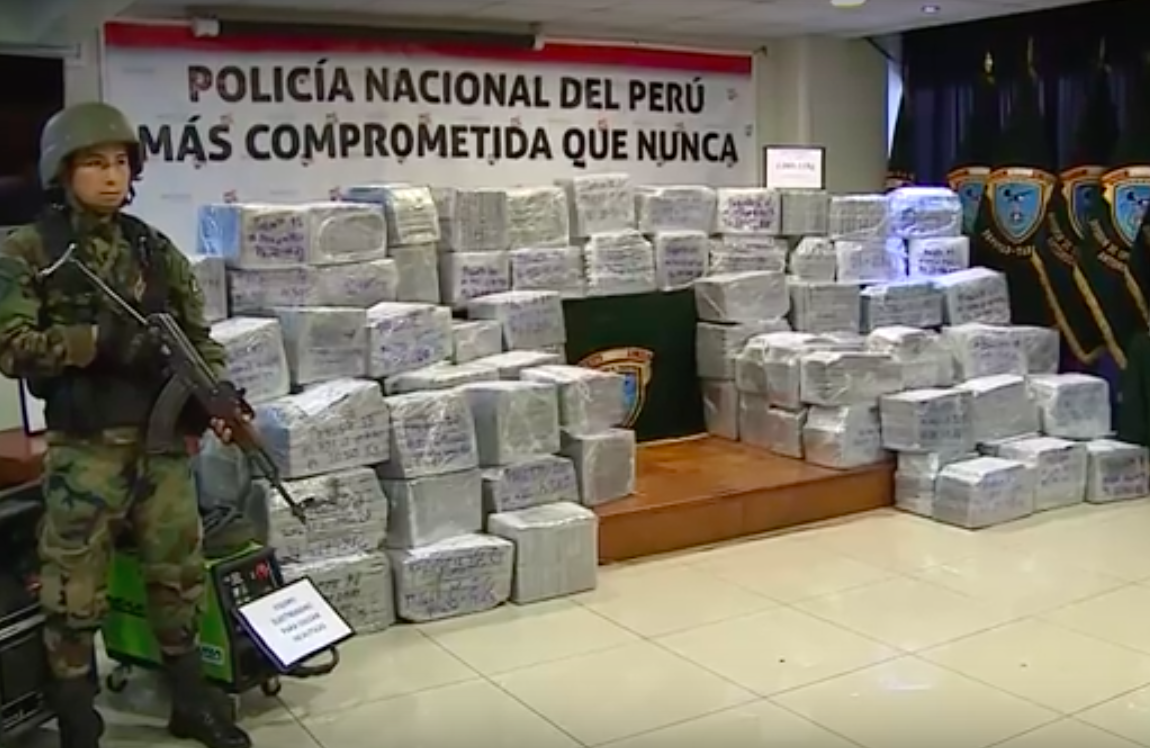
This month, Peruvian officials unveiled over two metric tons of cocaine hidden amongst cans of asparagus destined for Amsterdam.
The Peruvian National Police foiled the smuggling caper near the capital city of Lima, arresting six people including one Serbian and five Peruvians who are suspected of running the operation out of a gourmet food vendor that cans and ships fruits and vegetables. Authorities valued the cocaine shipment at over $4 million in Peru and $174 million by the time it would have arrived in Europe.
Police seized the cocaine on January 11, a statement from police read. The agents located the drugs “hidden between cans of asparagus,” according to authorities.
A computer, communication equipment, two SUVs, a Glock pistol and $75,000 in cash were also seized during the raid on Fresh Aromas of Peru Corporation. Local prosecutors say the business is part of an international drug trafficking ring that ships cocaine from Peru into Europe. Drug trafficking from Peru has risen in the last several years as traffickers have established a base in the country, that some believe is becoming a “narco-state.” Currently, Peru is the second biggest producer of cocaine in the world, behind Colombia.
“Everyone here knows it but no one wants to admit it,” prominent security analyst Jaime Antezana said about cocaine’s rising influence in Peruvian politics, a key trait of a narco state. “When I say everyone, I am talking about the establishment. The general population gets it. This is a country where thousands of people, maybe even two million people, live from the cocaine trade in some way.” But the country is also the world’s largest producer of asparagus, quinoa, avocados, and artichoke, which makes stopping shipments difficult.
Drug trafficking organizations have taken an interest in the country’s ports and have reportedly recruited dock workers to make their smuggling ventures easier.
Also, according to Business Insider, since the Peruvian military has been authorized to shoot down drug-smuggling aircraft, more trafficking organizations are switching their operations to the docks to get their goods to Europe—the result being more large-scale busts like this one, as Europe’s demand for drugs like cocaine is far from waning.
